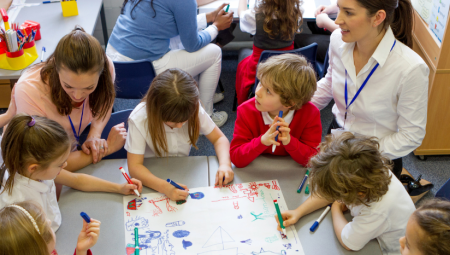Background
Covid-19 has brought about many changes to the daily lives of children, young people and families, including closure of schools, clubs and activities, as well as ‘socially distant’ socialising, and worries about the health and wellbeing of loved ones. The impact of covid on children’s mental health is unknown, especially over the longer term. Rapidly developed new surveys are valuable in scoping the situation and exploring specific aspects. However, those using convenience samples cannot provide the prevalence estimates needed by policy-makers and commissioners in order to understand the extent and distribution of need and guide their response to mitigate longer-term impacts at scale. We are targeting this gap by using a large national representative probability sample, which has comprehensive pre-pandemic and well characterised social context data, allowing us to study inequalities and identify children with additional needs. Children and young people (aged 14-22), and parents of 5-19 year old children and young people who previously gave permission to be contacted about further research would be invited to take part in interviews electronically and/or to download a mobile application designed to monitor mood and wellbeing.
Project Aims
Our wider project aims to track children and young people’s mental health and wellbeing over the course of the pandemic. It involves three waves of follow-up with children, young people and parents who participated (and consented to be re-contacted) in the Mental Health of Children and Young People in England 2017 (MHCYP) survey. The follow-up waves include a combination of validated measures (such as the Strengths and Difficulties Questionnaire (SDQ)), measures repeated from baseline, and newly developed Covid-19 related questions.
The three waves of follow-up to the MHCYP 2017 SURVEY were accompanied by ‘follow-on’ research, collecting further data from participants about their experiences using interviews, and tracking their mental health over the course of the pandemic using a mental health mobile application recently co-designed by young people
Through these linked studies, we will address the following main research questions:
1. How much does the mood and experience of stressful events fluctuate between days among young people, in the context of the Covid-19 pandemic and recovery, and what influences this?
2. What have the experiences of children and young people with Special Education Needs and Disabilities (SEND) and their families been during the Covid-19 pandemic?
3. What is the prevalence of eating disorders, eating disordered behaviour and comorbid anxiety and depression symptoms amongst participants in MHCYP Wave 2 who screened positive for eating disorders? What has been their experiences of disordered eating during the pandemic and what support and coping strategies have been useful?
4. How has children and young people’s mental health changed over the course of the pandemic, from July 2020, to summer 2021? What changes over the three waves of MHCYP surveys in: the prevalence of mental disorder (as measured by the Strengths and Difficulties Questionnaire); emotional and behavioural difficulties; and measures of wellbeing. How has help-seeking behaviour and experiences of education changed?
Project Activity
The project is currently ongoing, data collection has ended but we are analysing data on research questions 2 and 3: RQ2 What have the experiences of children and young people with Special Education Needs and Disabilities (SEND) and their families been during the Covid-19 pandemic? and RQ3 The prevalence of eating disorders, eating disordered behaviour and comorbid anxiety and depression symptoms amongst participants in MHCYP.
Anticipated or actual outputs
We are targeting a gap in evidence by using a large national representative probability sample which has comprehensive pre-pandemic and well characterised social context data to study how children, young people and their parents coped during lockdown and identify children with additional needs. Our results will inform public policy and health commissioners on how children and young people can be best supported moving forward and also in the eventuality of a new pandemic.
Papers/resources
RESHAPE podcast series - https://www.acamh.org/podcasts/reshape-study-young-peoples-lockdown-experiences/
Papers:
Newlove-Delgado, T., McManus, S., Sadler, K., Thandi, S., Vizard, T., Cartwright, C., Ford, T., & Mental Health of Children and Young People group (2021). Child mental health in England before and during the COVID-19 lockdown. The lancet. Psychiatry, 8(5), 353–354. https://doi.org/10.1016/S2215-0366(20)30570-8 https://www.ncbi.nlm.nih.gov/pmc/articles/PMC8824303/
Mathews, F., Ford, T.J., White, S. et al. Children and young people’s reported contact with professional services for mental health concerns: a secondary data analysis. Eur Child Adolesc Psychiatry 33, 2647–2655 (2024).
https://doi.org/10.1007/s00787-023-02328-z
https://link.springer.com/article/10.1007/s00787-023-02328-z
Cross, L., Carey, E., Benham-Clarke, S., Hartley, A., Mathews, F., Burn, A. M., … Ford, T. (2024). Navigating changes: reflecting on children and young people’s experiences of public health and social measures during the COVID-19 pandemic- a purposive, qualitative follow-up from a national probability sample. Emotional and Behavioural Difficulties, 29(1–2), 18–35. https://doi.org/10.1080/13632752.2024.2360778
https://www.tandfonline.com/doi/full/10.1080/13632752.2024.2360778?scroll=top&needAccess=true#abstract
Who is involved?
PI and corresponding researcher
Tamsin Ford, PhD
Professor of Child and Adolescent Psychiatry
Department of Psychiatry, University of Cambridge
Tamsin Newlove Delgado, PhD
Senior Clinical Lecturer and Honorary Consultant in Public Health,
University of Exeter
Dr Johnny Downs, PhD
Senior Clinical Lecturer
Department of Child and Adolescent Psychiatry, King’s College London
Sally McManus PhD
Natcen Associate
Department of Health and Social Care, National Centre for Social Research
Katherine Sadler, PhD
Research Director,
Department of Health and Biomedical Research, National Centre for Social Research
Tim Vizard, PhD
Prinicipal Research Officer
Office for National Statistics
Lauren Cross, MPhil
Research Assistant
Department of Psychiatry, University of Cambridge
Frances Mathews, MRes
Research Assistant
College of Medicine and Health, University of Exeter
Ginny Russell, PhD
Senior Lecturer, University of Exeter
Shelley Norman, PhD
Research Associate, University of Exeter
Jessica O’Logbon
Mphil Candidate, University of Cambridge
Alex Hartley,
BSc Placement Student, University of Bath (Under the Supervision of Prof Tamsin Ford)
Simon Benham-Clarke, MSc
Research assistant, University of Exeter
Raven Jorgensen, MSc,
Medical Student Intern, University of Exeter (supervised by Dr Newlove-Delgado)
Dr Katie Sales,
Academic Clinical Fellow in Paediatrics, University of Exeter (supervised by Dr Newlove-Delgado)
Additional members of the study team who will contribute to interviews and analysis
Faith Adeyemi
BSc Placement Student, University of Bath (Under the Supervision of Prof Tamsin Ford) –
Aslihan Başer, MSc
Research Assistant, University of Cambridge
Clara Faria MPhil student and research assistant, University of Cambridge
Mathew Severyn MPhil student, University of Cambridge
Contact
tjf52@medschl.cam.ac.uk





